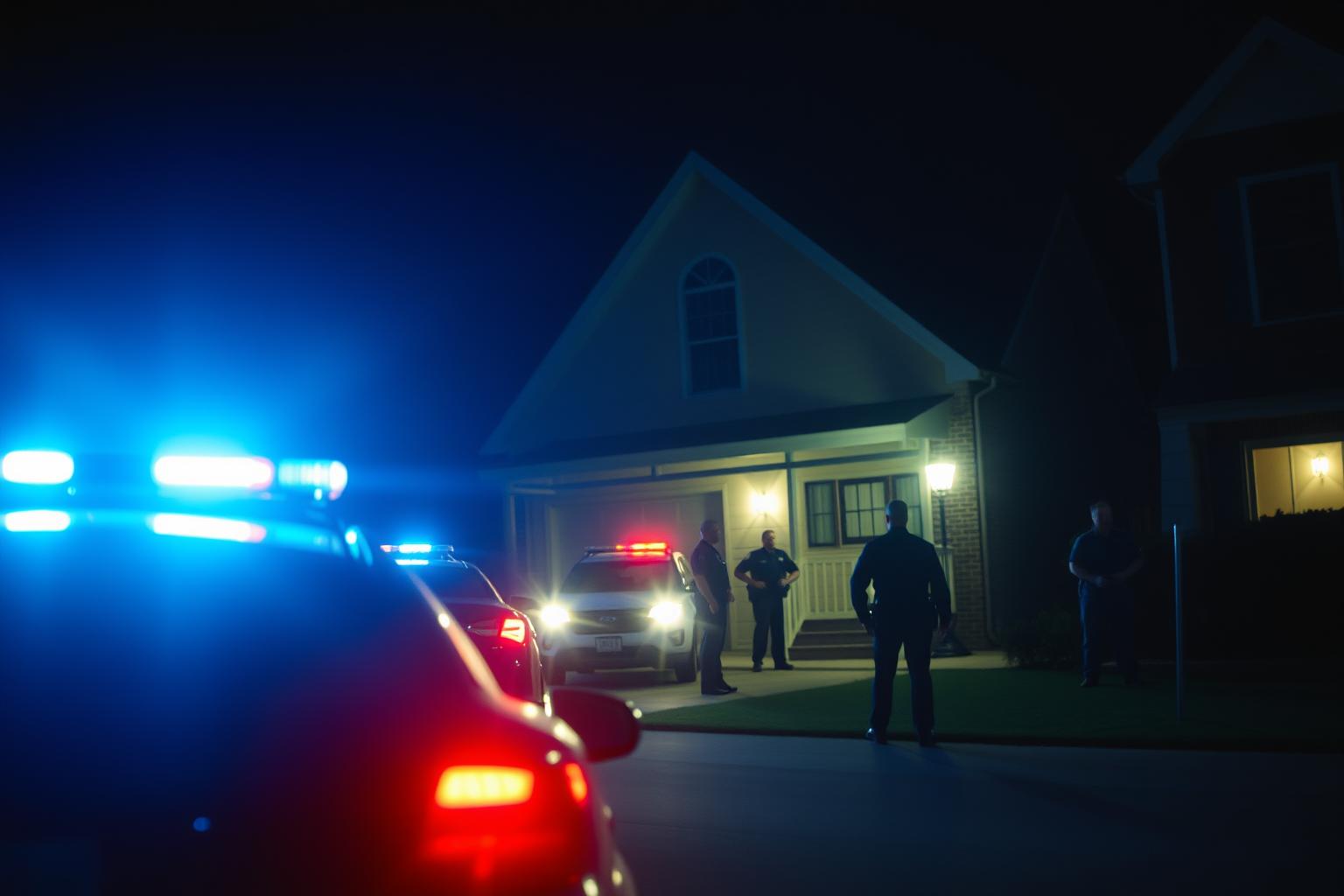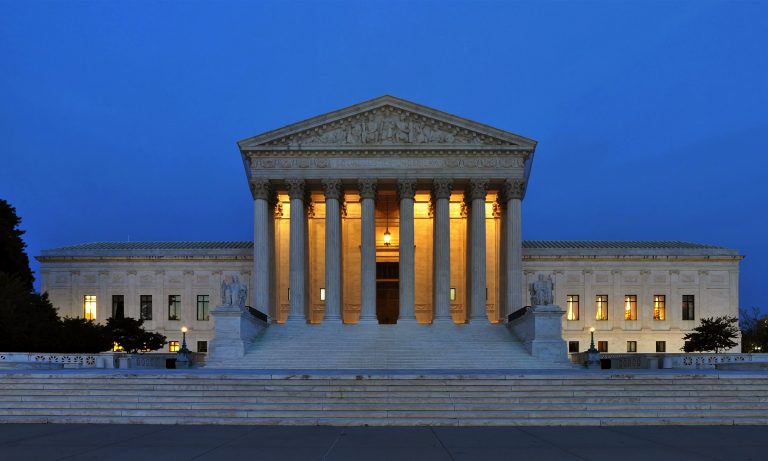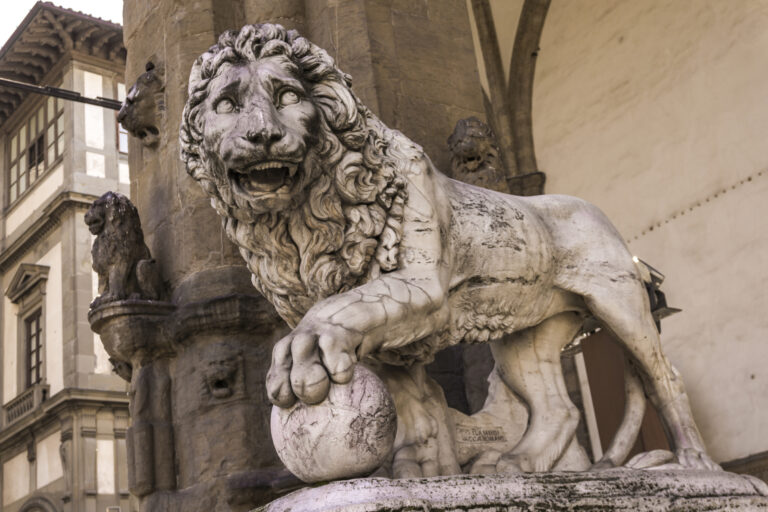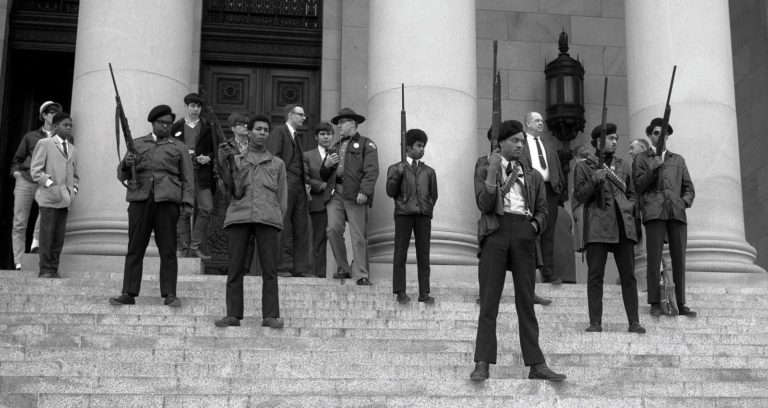Soviet Union Style Justice in America: The Political Prosecution of Robert Rundo
By Glen Allen, Esq.
This is the first in what I hope will be a series of articles about the prosecution – “persecution” may be a better word — of Robert Rundo. To those not acquainted with him, Mr. Rundo has been one of the foremost victims in recent decades of the political weaponization of the American justice system against the Dissident Right. This ignominious process has antecedents reaching back many years. In numerous cases in the last decade, however, this departure from impartial justice accelerated to an almost Soviet Union style disregard for the rule of law. Mr. Rundo’s case exemplifies this.
Mr. Rundo, to be sure, is not the only victim of this weaponization. The list of victims is long, including most of the January 6 defendants, about whom I hope also to write a series of articles. Here are my reasons for writing first about Robert Rundo:
- I understand the legal issues in the Rundo prosecution well, especially those regarding the unconstitutionality of the federal Anti-Riot Act under which he was prosecuted and convicted. The Free Expression Foundation filed several amicus briefs in support of Mr. Rondo on that topic.
- I have extensively interviewed Mr. Rundo. I intend in my series of articles to quote directly from these interviews, allowing him to speak in his own voice as much as possible.
- Rundo’s story has the twists and turns, victories and defeats, loyalties and betrayals, dramas and comic moments of a gripping Hollywood movie. Someday, one hopes, such a movie will be made.
- Rundo’s case lays bare Police State conduct by our governments many Americans suspect but few encounter. It is disheartening to confront this reality, as Rundo’s story forces us to do. We cannot, however, take corrective action unless we confront these uncomfortable facts.
- Rundo’s case illustrates the power of media to fashion an alternate reality that effectively serves their political agendas. In Rundo’s case, a partisan article by an organization called Pro Publica led directly to his indictment and prosecution and the brutal treatment he received from law enforcement around the world. Rundo should never have been prosecuted, and would not have been prosecuted but for the Pro Publica article.
As a preview that hopefully will whet the appetites of potential readers, here are a few excerpts from my interviews of Mr. Rundo.
RUNDO’S EARLY LIFE
- Where did you grow up?
Rundo: Queens. Yeah, New York. I didn’t fit in, school didn’t fit me. Not that it mattered. School was just a factory—overcrowded, chaotic, no one gave a damn about you. They said it was built for 3,000 students, but we had double that. So I learned to disappear. I didn’t need the classrooms. I had the streets. Back then, New York wasn’t full of artisanal coffee shops and overpriced apartments. It was real. It was a war zone, except the guns were invisible. Three blocks, you find your crew. No one calls themselves a gang. It’s just the guys, the crew, a bunch of people trying to exist. We gave ourselves names, wrote them everywhere—tags on walls, on trains, on anything that wouldn’t scream back. I would end up getting charged for that at 15 years old, and they sent me to a juvenile program for a few months. One other white kid in the whole place, 300 of us. The other youths there referred to the program as gladiator school. It was a hardening experience, a wake-up call. I went in naïve and came out red-pilled.
- What happened after that?
Rundo: After that, things got complicated. You know, we were just kids trying to survive, but then MS-13 shows up in our neighborhood, and suddenly it’s not just about hanging out and doing stupid stuff. It’s about territory, power, and violence. MS-13 weren’t just some neighborhood crew. These guys were running on a whole other level. A lot of people thought it was a joke until they realized it wasn’t. I had two close friends stabbed by them. No warning, no real reason other than the wrong place at the wrong time. It was ugly. It was real.
By the time I turned 18, I had my own run-in with them. A knife fight—stupid, I know. But when you’re in it, you don’t think about the stupid. You think about survival. I came out on top, but it wasn’t a victory. The guy I got into it with? He had a long rap sheet—he wasn’t exactly some Boy Scout. He didn’t die, which saved me life in prison. I was young at the time and got “street struck” as they say, meaning caught up living.
- What was it like in prison?
Rundo: It’s rough for a young white going through the NYC prison system. It’s not like what you see in the movies, with a bunch of skinheads sitting at a table in shades waiting to welcome you. That happens more on the West Coast, but in New York, it’s different. Whites are few and far between and even when there are some they tend to stick to themselves. Most of them are addicts or weirdos. There were very few I encountered I actually respected and would allow to work out with me. For the rest of it, the other inmates are like hyenas. They go for the low hanging fruit most of the time but I grew up a little rough around the edges, so I was able to handle it. Besides that it is a nightmare of boredom that repeats itself everyday. In total it was lots of working out and reading and in the end it actually disciplined me and broke me out of that street mentality I had going in. I came out much sharper, healthier, harder.
CREATION OF THE RISE ABOVE MOVEMENT
- What did you do after you left prison?
Rundo: I left that life behind, simple as that. I had a girlfriend who stuck by me through all of it, which, honestly, I didn’t expect. I started working as a steamfitter in the union—nothing glamorous, but it was honest work. Just the typical grind, you know? But all the while, I kept looking for something more. I had these nationalist feelings.
At one point, I reached out to the only online group I could find. Thought I’d give it a shot, see what it was about. Guy shows up in boots, camo, looking like he’s ready for a combat zone instead of a conversation. And I’m just thinking, this isn’t it. I made an excuse, told him I’d be right back, and just walked away.
A few years later the group Identity Europa started. It was cool, lots of solid people I met, but it was a little too clean cut. It was not what I was looking for, it was better than the guys dressed up in army uniforms and such but at the same time it was very white collar, I guess you would say very suburban but with all the memes and Pepe the frog I didn’t take it too seriously. I was really looking for guys who have an activist culture and were physically fit and didn’t spend countless hours online posting frog pictures.
That’s when I came across a couple of friends that were Eastern European. They showed me some videos, videos showing Roman statues, showing guys boxing, guys at the pub with their girlfriends, something very normal. That got me actually training heavy into boxing, as I ended up taking it really serious because I was emulating all that Eastern European stuff. So we [formed the Rise Above Movement] and did a banner drop off the L.A. freeway and stickers and boxing and working out. I don’t think anything existed close to that in America or even in the Anglosphere in general. The podcasts that were out there were super vulgar but we wanted to be the opposite, to be clean cut, so if you watch our videos there are no words in the videos and none of us did any podcast interviews that would step against the rules except one guy before joining RAM had posted some over the top stuff and that’s what Pro Publica was able to use against us.
We were well liked. I would say we were the only group that when we showed up at those Trump rallies people came up to us and shook our hand and said God Bless you guys for being here. It was different from what you see today. Guys today show up in masks, they don’t interact, if anything they’re confrontational. We were the opposite; we brought flyers, we would speak to normal people, we never came with any flags or anything edgy or arm bands stuff. We were just some All-American guys.
[With RAM] I just wanted to create a vehicle for something positive for young guys like myself . . . I think of myself when I was 16, how different I could have been if I would have been exposed to something more positive. Every project I do whether its working out with guys, music, videos, clothing, I think of myself when I was 16, would this change me away from the ghetto rap culture I was into that was very dangerous and got me a lot of trouble.
SWAT TEAMS AND THE FBI RANSACK RUNDO’S APPARTMENT AND ASSAULT HIM, OSTENSIBLY TO SERVE A SEARCH WARRANT
Glen Allen Comment: Mr. Rundo and other RAM Members participated in two Pro-Trump rallies in California in early 2017, i.e., Huntington Beach (March 25, 2017) and Berkeley (April 15, 2017). At both rallies Rundo was involved in physical altercations with individuals associated with Antifa. Shortly after that, an organization called Pro Publica published an article and then a video that included photographs from those incidents. By omitting key facts such as the violence perpetrated by Antifa, the weapons they had on them, and their role in instigating the altercations, Pro Publica falsely portrayed Rundo and other RAM members as violent domestic terrorists.
FEF’s future articles will describe the Huntington Beach and Berkeley rallies and the Pro Publica article and video in some depth, but this introduction will skip over these topics for now and describe the massive show-of-force service of a search warrant by a SWAT team and FBI agents on Rundo that followed these incidents:
Rundo: Yeah, it was like something straight out of a movie. Crazy—that’s the only way to put it. There were probably ten of them, maybe more. I lived on the first floor, had a big window right over my bed. They didn’t even bother with the door—they came right through the window, right on top of me, while I was lying there.
They blew out the window first, then tossed in two flashbangs. I’m still half-asleep, trying to process what’s happening when they storm in with assault rifles, stepping over me, on my bed. I got dragged out by my feet, a gun pressed to the back of my head. It was terrifying.
At one point, one of the officers pressed the barrel of his gun into my head, forcing my face into the floor. On top of that, they just wrecked the whole apartment—smashed every single window, ripped open bags of coffee, scattered everything. My clothes, my books—everything was taken. I didn’t even have anything radical in my collection, mostly romance books and some books on Roman history. They took those anyway.
So there I am, lying in my boxers, gun to my head, and they drag me out into the living room. The FBI hadn’t shown up yet. First, it was this SWAT team, all dressed up in elbow pads, helmets. They’ve got my hands behind my back, forcing me to crouch down so my head’s almost touching the floor. I look up, and I see them rifling through my cabinets, tossing cereal and coffee on the floor, just destroying everything.
- Do you think this 3 a.m. massive force execution of the search warrant was politically motivated?
Rundo: This is how I knew it was political. They take me out front and basically march me around my apartment complex in my boxers for all the neighbors to see. Then the actual FBI guys come in with their jackets with the lettering on their shirts and all this stuff . . . and they’re like “listen can we speak to you about something?” At the time what I thought happened was we had this problem with these journalists from Pro Publica that were really out to harm us and I thought they had done like a swatting on me and said we had guns or something. So I thought [the FBI] were like looking for something that didn’t exist, you know, because I never owned any firearms. I’m from New York. Guns weren’t something I really got into, so I thought they were just coming on some bad tip that we had weapons or something. . . . so I’m like “yeah, what do you have to say?” and he’s like “were you at Huntington Beach?” Now obviously I was at Huntington Beach; my face was front page on the New York Times for being at Huntington Beach. So I say of course I was there and I’m thinking maybe the guy I got into a fight with died or was injured. So he’s like “you got into a fight at Huntington Beach, right?” and I was like “yeah, did the guy die or something?” and he says “no no the guy’s fine, actually we don’t really know who he is.” Basically he let’s me know they were there in connection with the Charlottesville RAM guys cases but because I wasn’t at Charlottesville all they had was a search warrant. It was an intimidation tactic; they were saying we got your boys and we’re doing this to you even though you weren’t there, to send a message to you. At the time of this raid there was only the first indictment for the RAM guys at Charlottesville; the second indictment for the California RAM guys was three or four weeks later.
So they end up letting me go. After they finally told me you’re free to go I was like you’re kidding me. I’m in my boxers so I asked the guy can I get some clothes back or something and they had to go into the truck and pull out a pair of jeans and a T-shirt because they took every piece of clothing I owned.
- What did you do next?
Rundo: That spooked me pretty hard. I mean, it was a hell of an experience, and I didn’t want to stick around for round two. I had some friends in Eastern Europe—they had a solid nationalist scene going on. I went to a boxing event there once, and I met this guy, a mentor of sorts. He told me, “Come out here. We’ll help you get settled. We’ll find you a job, figure things out.” So I said, “Alright, I’ll make it happen.” I had some savings from working with the union, so I wasn’t totally broke. I bought a flight, but instead of going direct, I took one with a layover—happened to be in the UK.
So I get to Gatwick just a day after they raided my place. I’ve got nothing with me but a few shirts, a book bag, a new phone, and a one-way ticket. Pulled all my cash out of the bank—I was going to figure the rest out once I was gone.
I board the plane to Gatwick and the minute I step off, it’s like I’ve walked into a setup. There’s this formation of airport security, some kind of Intel team. Right away they stop me and ask for my passport. They signal to each other I’m “the guy” and form a phalanx around me. They march me through the airport in the middle of this phalanx with at least fifteen guys forming a box around me. No one gets near me. No one’s even allowed to look at me.
Glen Allen Comment: Mr. Rundo’s saga is fascinating and important on so many levels that I aspire eventually to compile and expand FEF’s articles about him into a full length book, complete with an appendix that would include, e.g., photographs, Judge Cormac Carney’s opinions (there are two important Judge Carney opinions, one striking down the Anti-Riot Act as unconstitutional and a later one dismissing the Rundo prosecution on selective prosecution grounds; both opinions were overturned by the Ninth Circuit Court of Appeals), and other interesting and relevant documents.
If you deem this book project a worthy endeavor, all donations to defray its costs will be greatly appreciated.
By Glen Allen Esq.







